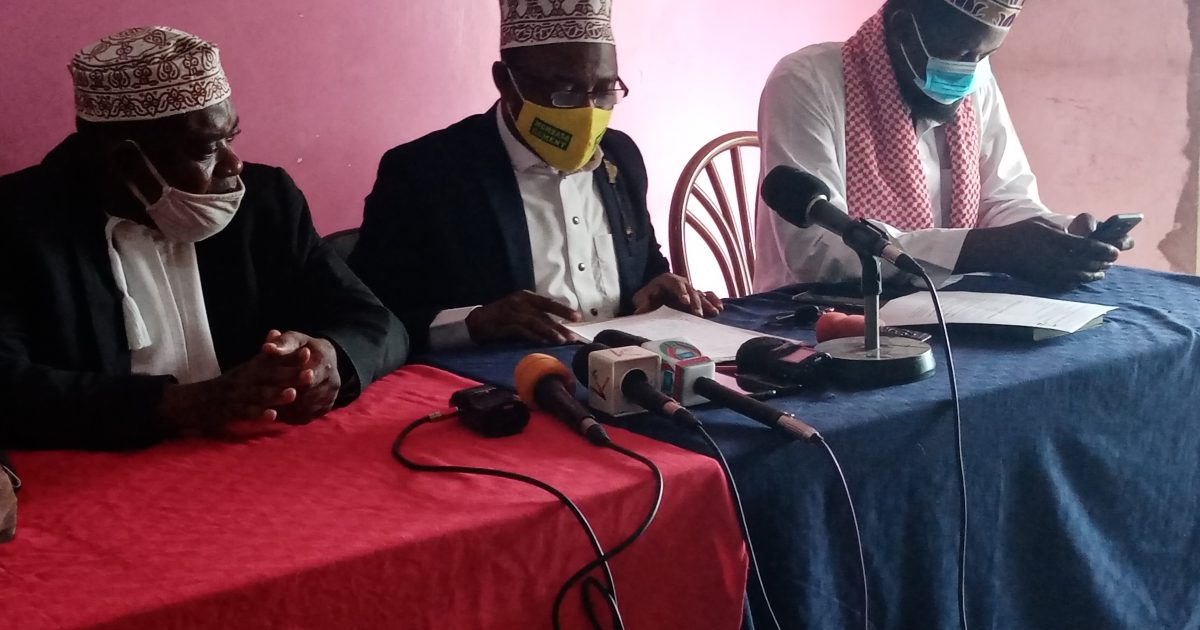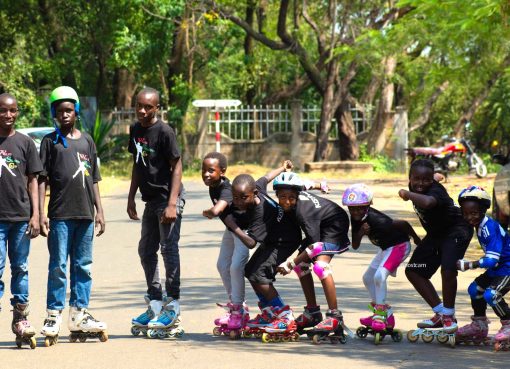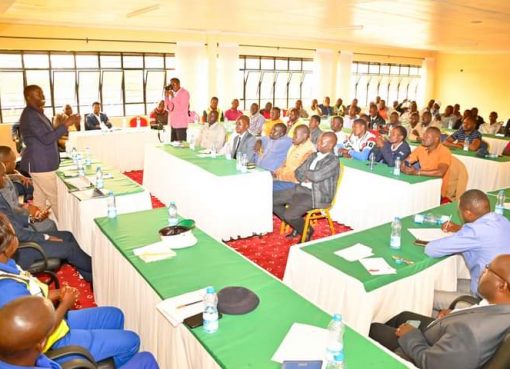Kenya Muslims National Advisory Council (KEMNAC) has asked Imams leading various mosques in Mombasa to observe Covid-19 guidelines outlined by the Ministry of Health or risk closure of their respective mosques.
The Muslim leadership has warned that, until Saturday if the guidelines on containing the spread of the virus are not followed, the government might order closure of all places of worship as cases continue to soar in Mombasa.
It has been noted with concern that most mosques do not adhere to the one-third rule in congregational prayers but allow the faithful to fill the mosques to full capacity without observing social distance.
The council warned the community not to take advantage of this holy month to break protocols saying violation will attract more stringent measures from the government.
According to data released by Mombasa County Covid-19 response committee, the county registered 752 last month, 762 this month and the country is worried that the spike may surpass the current 9.3 per cent positivity rate.
Addressing the media on Thursday in Mombasa, National chairman KEMNAC Sheikh Juma Ngao said that the County’s Covid-19 committee had warned the council of possible closure of mosques following ignorance by the faithful who have ventured much in prayers during this holy month.
“We want to warn the imams who still ignore Covid-19 protocols that we will not let mosques be closed but instead remove such imams and replace them with those that are going to enforce the guidelines,” he warned.
Last year, Muslim faithful across the country had to observe the month of Ramadhan under strict regulations following orders by the national government to close all worshipping places.
On Monday Muslim clerics met with the Mombasa Covid-19 Emergency Response Committee to discuss cases on how to curb the spread of the virus.
The council warned Muslims against breaking the fast together at mosques. They also asked the faithful to observe social distance and put on masks during the congregation prayers.
“I call upon fellow Muslims to be disciplined and observe the guidelines set by the Ministry Of Health. Avoid gatherings while breaking our fasts, wear your masks and keep distance to protect each other. Do not give the government a reason to close our mosques,” Ngao said.
At Ramadhan, Muslims always observe dawn to dusk fast and like eating together in breaking of the fasts. To observe this culture, the faithful visit each other at homes for Iftar (the meal after breaking the fast). The pandemic has however disrupted this culture.
By Chari Suche





